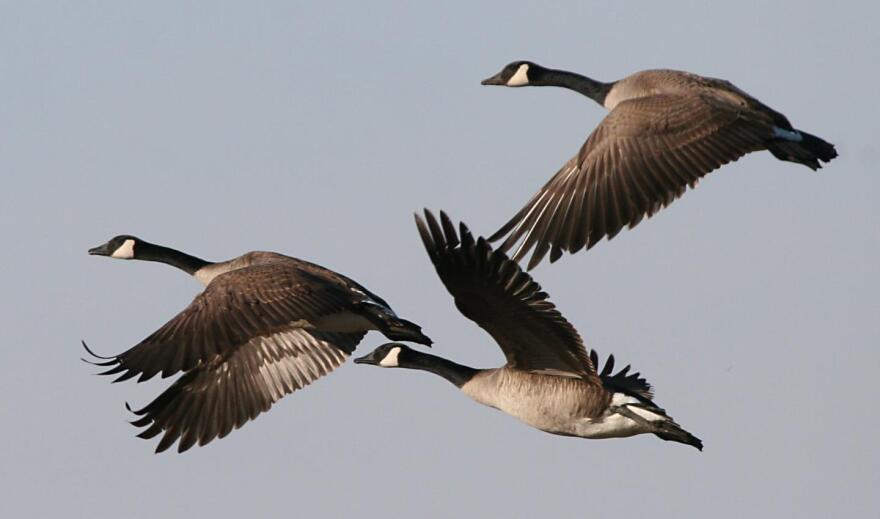Canada geese have been spending their winters farther north.
Scientists have figured out geese are drawn to cities for safety more so than for food.
Michael Ward is an associate professor in the Department of Natural Resources and Environmental Sciences at the University of Illinois at Urbana-Champaign. He’s an author of a study on Canada geese in the Chicago region.
Ward and his team fitted Canada geese with radio collars and tracked them for two years, trying to understand why there are so many geese in Chicago during the winter.
“And what we learned was that they weren’t going there for food, they were going there because there were no hunters,” he explains. “So all of the Canada geese that spent the winter in Chicago survived, whereas half of the birds that decided to leave the Chicagoland area and go to areas where hunting is allowed and more prevalent were harvested.”
Ward says geese are all about conserving energy.
“It takes a lot of energy to fly far south. So, the farther north they can go, when spring comes they don’t have to go as far north to the breeding grounds.”
But living in cities has a cost for the birds, as well.
“Even though the ability to find corn, field corn and other types of grasses is quite limited in large cities, they can hang out on top of a building or in a park, and not have to worry about being hunted. Whereas if they leave these areas and go to agricultural fields throughout the Midwest, there’s often hunters around that are trying to harvest them," he says.
There are also many safety concerns for major cities that have large goose populations.
Chicago has two major airports, and while Ward notes that thankfully there have been no catastrophes yet, he remembers the infamous 2009 “Miracle on the Hudson” in New York, when a plane lost both engines after flying through a flock of geese.
"If you have a flock of a hundred, hundred-fifty [geese] flying across an airport, that’s not a good thing.”
One tactic Ward proposes is scaring the birds away, hoping that by forcing them to use energy, they will migrate away from airports.
“Because theoretically,” he says, “if they’re just trying to hunker down and make it through the winter and trying to conserve energy, if you scare them a few times and make them fly some more, they may use some energy and then they might not be able to make it up and so then they may have to migrate out of the area, which would be good for the air traffic.”






